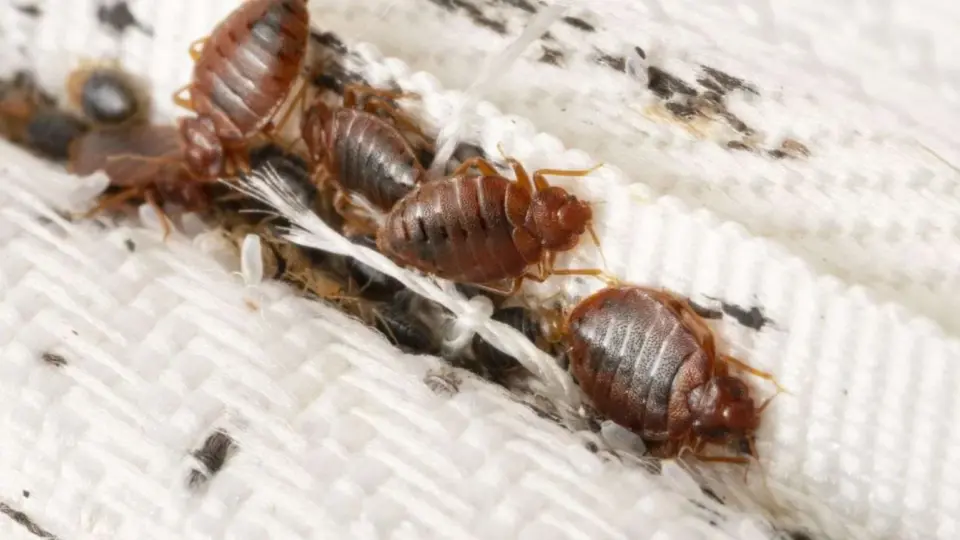
When bed bugs move in, peace of mind moves out. These tiny pests cause more than skin-deep problems. People start losing sleep, patience, and even their sense of safety at home.
The mental strain builds fast and exterminators see it all up close. They step into homes where people are desperate, frustrated, and sometimes just hanging on by a thread. Bed bug infestations are rarely just physical problems. The psychological impact hits just as hard, and sometimes even harder.
How do bed bug infestations affect mental health?
Bed bug infestations can take a serious toll on mental health, often causing distress that lingers long after the pests are gone. Unlike many household nuisances, bed bugs invade the most personal space where people sleep and rest creating deep psychological discomfort. Here’s how they can impact mental well-being:
- Sleep Disturbances: Constant itching, fear of being bitten, and hyperawareness can lead to insomnia or restless sleep, which in turn worsens stress and irritability.
- Anxiety and Hypervigilance: Individuals may develop a persistent fear of bugs returning, frequently checking sheets, furniture, and clothes, even after treatment.
- Social Withdrawal: Embarrassment about the infestation can lead to isolation. People may avoid inviting guests over or staying with friends or family.
- Depression: The ongoing stress, disrupted routines, and feelings of helplessness can contribute to low mood or even depression in severe cases.
- Paranoia and Phantom Sensations: Some continue to feel crawling sensations long after the bugs are gone, a phenomenon known as “delusory parasitosis.”
- Emotional Exhaustion: Managing an infestation is overwhelming—coordinating treatments, cleaning, and replacing items can leave individuals mentally and emotionally drained.
The psychological effects are real, and addressing them is just as important as eliminating the infestation itself.
What psychological symptoms are common during a bed bug infestation?
During a bed bug infestation, many individuals experience psychological symptoms that go beyond discomfort or inconvenience. These symptoms are often intense and can affect daily functioning. Common psychological effects include:
1. Insomnia and Sleep Disturbances
A fear of being bitten at night often leads to difficulty falling or staying asleep, frequent waking, or avoidance of sleep altogether.
2. Anxiety and Panic
Constant worry about the infestation spreading or returning can trigger anxiety, racing thoughts, and even panic attacks in some cases.
3. Hypervigilance
Many become obsessively alert to small movements, skin sensations, or specks on bedding—frequently checking for bugs or signs of bites.
4. Paranoia
Some people begin to fear that bugs are everywhere, even in locations that have been treated or where no evidence is found.
5. Social Withdrawal
Shame or embarrassment over the infestation can cause individuals to isolate themselves from friends, family, or coworkers.
6. Depression
Persistent stress, sleep loss, and a sense of helplessness may lead to low mood, hopelessness, or clinical depression, especially if the infestation drags on.
7. Delusory Parasitosis (Phantom Itching)
Even after eradication, some individuals continue to feel as though bugs are crawling on their skin, a psychosomatic reaction that can be distressing.
These symptoms highlight that bed bug infestations are not just physical nuisances, they can become serious mental health burdens.
Why do exterminators notice stress in people with bed bug problems?
Exterminators often witness high levels of stress in people dealing with bed bug problems because these pests invade more than just space, they disrupt peace of mind. The emotional and psychological effects are often visible as soon as the exterminator steps through the door. Here’s why:
- Loss of Control: People feel powerless against bed bugs. Despite constant cleaning and precautions, the infestation persists, leading to frustration and helplessness.
- Sleep Deprivation: Many residents haven’t slept properly in days or even weeks. The fear of being bitten keeps them awake or forces them to sleep elsewhere.
- Emotional Breakdown: Exterminators often encounter clients who are on edge, crying, panicking, or visibly overwhelmed. The stress of managing treatment prep, discarding belongings, and dealing with the stigma adds emotional strain.
- Obsessive Behavior: Some individuals become hyper-focused, cleaning excessively, vacuuming multiple times a day, or constantly inspecting their bedding and furniture.
- Social Isolation: People often avoid visitors or refrain from leaving home due to embarrassment, which can increase their stress and loneliness.
- Financial Pressure: The cost of professional treatment, laundry, and replacing items adds another layer of anxiety, especially for those on a tight budget.
Exterminators quickly realize they’re not just treating bugs—they’re helping people through a mental and emotional crisis.
How can bed bug infestations impact sleep and anxiety levels?
Bed bug infestations have a direct and often severe impact on both sleep quality and anxiety levels. Because these pests feed at night and often go unnoticed until symptoms appear, they trigger a deep sense of unease in the one place people are supposed to feel safe—their bed. Here’s how infestations affect sleep and mental health:
- Fear of Being Bitten at Night: Knowing bed bugs are active during sleep hours causes many to stay awake out of fear, delaying or avoiding sleep altogether.
- Interrupted Sleep Patterns: Individuals often wake up multiple times during the night, typically due to itching, paranoia, or the need to inspect their surroundings.
- Insomnia: Chronic lack of restful sleep becomes common, with some people developing full-blown insomnia due to stress and fear.
- Heightened Anxiety: The constant worry about bugs returning or spreading triggers anxiety, often leading to racing thoughts and physical symptoms like a racing heart.
- Anticipatory Stress: Even after treatment, the anxiety doesn’t always disappear. People remain on edge, anticipating a new infestation or phantom bites.
- Loss of Comfort in the Bedroom: When the bed becomes a source of fear rather than rest, it can lead to long-term psychological distress that affects overall well-being.
Sleep and mental health are deeply connected, and bed bugs disrupt both.
See What Bed Bugs Do to Mental Health
At Freedom Pest Services, we’ve seen firsthand how bed bug infestations go beyond bites and stains, they deeply affect mental health. From sleepless nights to constant anxiety and emotional exhaustion, these pests take a serious toll on your well-being.
We don’t just treat the infestation; we bring peace of mind with compassionate, thorough, and effective solutions. Our team understands the emotional weight that comes with bed bugs, and we’re here to help you reclaim your space and regain your sense of calm.
Let Freedom Pest Services restore your comfort and confidence with expert care you can truly count on.
